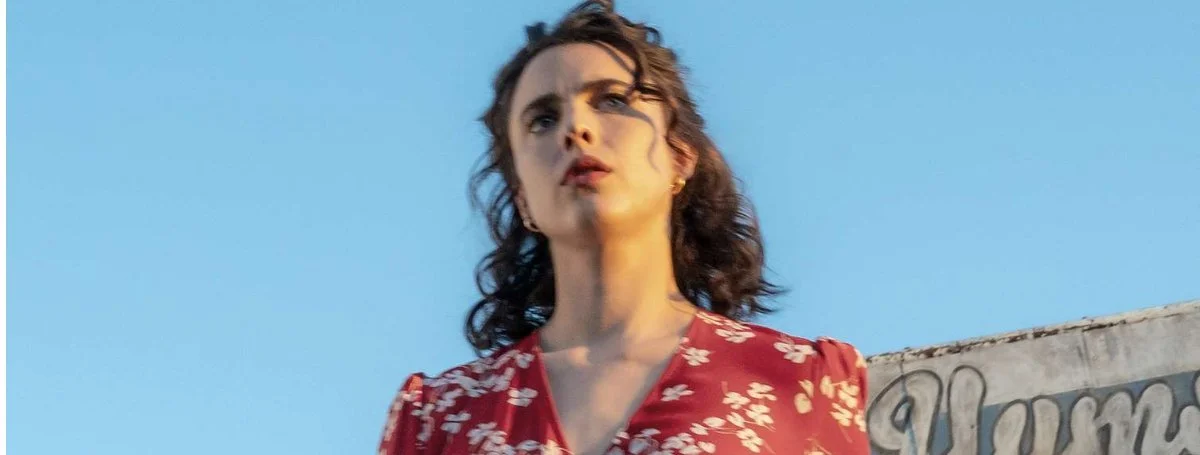Amidst all the hype surrounding the film, it’d be best to slightly lower your expectations when it comes to Osgood Perkins’ “Longlegs.” It’s not the second coming of horror, nor is it the masterpiece some genre sites may have led you to believe. Its setup is too familiar, relying on serial killer tropes, with too many elements getting mixed into the story.
With that said, taken on its own merits, “Longlegs” is quite good. Perkins knows how to frame and block the hell out of his films. In his version of the serial-killer thriller, he uses the grisly realism of past classics, and even ends up flirting with the supernatural. The choice to always have everyone in the middle of the frame is deeply unsettling; this consequently has the wide-open spaces around them steeped in dread.
I won’t spoil much in this review since the best way to go into “Longlegs” is not to know a thing about it. That’s what the barrage of cryptic marketing has hinted at: eerie ambiguity. Smart move on the part of Neon, as the less you know, the better.
Divided into three chapters, the film begins with a disturbing prologue, shot in 4:3 aspect ratio. Perkins only gives us a partial glimpse of the film’s villain —cropping him off at the head — as he approaches his next victim on her ninth birthday. His clownish demeanor hints at a deranged and troubled mind.
The barebones of the plot revolve around rookie FBI agent Lee Harker (Maika Monroe). Her strong intuition, which recently led to capturing a wanted killer, promotes her to a case like no other. She’s tasked by her boss, Agent Carter (Blair Underwood), who calls her “half-psychic,” to investigate a beguiling series of crimes, in family homes. Ten houses, ten different families, with husbands killing wives and children before taking their own lives. There’s no evidence pointing to forced entry. However, in every murder scene a letter, written in code, and signed “Longlegs,” is found. Another connection has all ten families having a murdered girl born on the 14th of the month.
The puzzling question Lee and Carter have is probably the same one you must be asking yourself right now: If no one broke into the homes, then how did these letters show up?
And so, Lee, who also happens to be born on the 14th, unhealthily obsesses over the case, diving deep into its occult mysteries. Monroe, an actress who’s starred in strong horror films (“It Follows,” "The Guest” “Watcher”), has never played a character quite like this one. Lee is quiet, unassuming and coldly detached from others. There’s always immense fear in her eyes, and it never really changes, she never smiles, and much like the viewer, senses the worst is yet to come.
It’s not a big secret that the serial killer, a loner dollmaker, is played here by Nicolas Cage, in a satanically gonzo riff on Buffalo Bill. It is initially somewhat of a distraction to have Cage in the role, but he ends up stealing many scenes as the faint-looking psychopath. He very much goes full-Cage here, looking and sounding like a glam rocker from hell. Whether Perkins likes it or not, this performance is bound to be memed to death.
Perkins, shooting in similar fashion to his 2017 creeper “The Blackcoat’s Daughter,” is an interesting case study of a filmmaker. He doesn’t necessarily use inventive or fresh new ways of shooting his films, but, watching them, you can honestly tell they were directed by him. They’re all slow-burns, filled with nihilism, static shots and dread-inducing atmosphere. Andrés Arochi Tinajero’s cinematography, often shooting through doorways or windows, is a key component of Perkins’ overall vision here.
There is a sense of familiarity to “Longlegs,” especially in the first half — that’s why it keeps being compared to “Silence of the Lambs,” and “Se7en.” Osgood’s film owes a great debt to these classics, not to mention the satanic cinema that came out of the 1970s. However, for whatever flaws the setup might have, things eventually take a surprising turn, and Osgood diabolically flips the switches on us in the film’s searing second half.
What “Longlegs” ultimately amounts to is a stylishly realized descent into hell, filled with memorable horror imagery, deeply unsettling undertones and a grueling soundscape. It’s a quietly unnerving film that could have probably benefited from less marketing buzz. Regardless, it glues your eyes to the screen and manages to subvert whatever you thought was coming next. Its payoff is wholly unpredictable. [B/B+]





